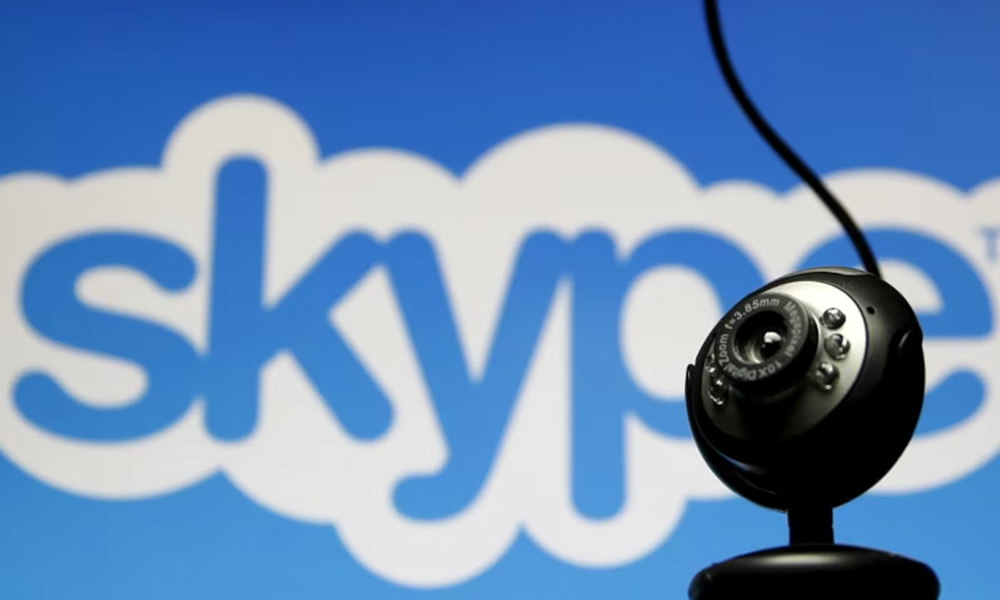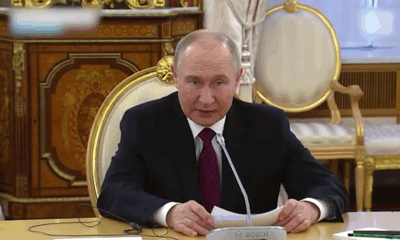Science & Technology
Facebook bans Myanmar military with immediate effect

Facebook on Thursday said it had banned the Myanmar military from using its Facebook and Instagram platforms with immediate effect, as weeks of mass demonstrations continue in the Southeast Asian country after the military seized power, Reuters reported.
“Events since the February 1 coup, including deadly violence, have precipitated a need for this ban,” Facebook said in a blog post.
“We believe the risks of allowing the Tatmadaw (Myanmar army) on Facebook and Instagram are too great.”
The army seized power this month after alleging fraud in a November 8 election won by Aung San Suu Kyi’s National League for Democracy (NLD). The army then detained her and much of the party leadership, Reuters reported.
At least three protesters and one policeman have been killed in violence at rallies.
The U.S tech giant said it would also ban all “Tatmadaw-linked commercial entities” from advertising on its platforms.
Reuters reported that Facebook stated the decision to ban the Myanmar army came due to “exceptionally severe human rights abuses and the clear risk of future military-initiated violence in Myanmar”, as well as the army’s repeated history of violating Facebook’s rules, including since the coup.
Facebook said the ban covered the military and its sub-units, army controlled-media and the ministries of home affairs, defence and border affairs, which are under direct military control.
The military government could not immediately be reached for comment.
Facebook is widely used in Myanmar and has been one of the ways the junta has communicated with people, despite an official move to ban on the platform in the early days of the coup, Reuters reported.
Science & Technology
Saudi crown prince launches new company to develop AI technologies
U.S. President Donald Trump travels to Saudi Arabia this week, the first stop on his Gulf tour, and AI is expected to be a major discussion point during Tuesday’s joint Saudi-U.S. investment forum in Riyadh.

Crown Prince Mohammed bin Salman launched a new company to develop and manage artificial intelligence technologies in Saudi Arabia on Monday, a top priority of its economic diversification drive, Reuters reported.
U.S. President Donald Trump travels to Saudi Arabia this week, the first stop on his Gulf tour, and AI is expected to be a major discussion point during Tuesday’s joint Saudi-U.S. investment forum in Riyadh.
The kingdom, the world’s biggest crude exporter, is undergoing a significant economic and social transformation under its Vision 2030 programme which aims to wean the economy off its oil dependency.
It wants to develop AI technology and infrastructure – including data centres – and has ambitions to establish the kingdom as a global centre for AI, pitching itself as a prospective hub for AI activity outside the United States, read the report.
Chaired by bin Salman, Saudi Arabia’s de facto leader, the new company, Humain, will operate under the Public Investment Fund, and offer AI services and products, including data centres, AI infrastructure, cloud capabilities and advanced AI models, the state news agency reported.
Earlier this year, cloud software seller Salesforce (CRM.N), said that it planned to invest $500 million in Saudi Arabia related to artificial intelligence.
Science & Technology
Skype ends operations after 22 years of service
Microsoft acquired Skype in 2011 and says the decision is part of a strategy to focus on its other platform, Microsoft Teams.

Skype officially shut down on Monday. The closure comes after nearly 22 years in operation, during which Skype became known for making international voice and video calls accessible and affordable for millions of people worldwide.
Microsoft acquired Skype in 2011 and says the decision is part of a strategy to focus on its other platform, Microsoft Teams.
Launched in 2003, Skype quickly became a revolutionary tool for free voice and video calls over the internet, amassing more than 300 million monthly users at its peak in the mid-2010s. The free platform changed how people communicated across borders, long before Zoom or FaceTime.
In 2011, Microsoft acquired Skype for $8.5bn, aiming to make it a central part of its communications strategy. But as competitors like WhatsApp, Zoom, and eventually Microsoft’s own Teams gained traction, Skype’s popularity faded.
On February 28, Microsoft said it would retire Skype on May 5 to streamline its services and prioritise Teams for communication and collaboration.
Microsoft has urged users to transition to Teams by visiting skype.com and utilising the “Start using Teams” feature. All Skype chats and contacts will remain accessible through Teams using the same login credentials.
Science & Technology
Apple moving to make most iPhones for US in India rather than China

Apple aims to make most of its iPhones sold in the United States at factories in India by the end of 2026, and is speeding up those plans to navigate potentially higher tariffs in China, its main manufacturing base, Reuters reported.
The U.S. tech giant is holding urgent talks with contract manufacturers Foxconn and Tata to achieve that goal, the person, who declined to be named as the planning process is confidential, said on Friday.
Apple and Foxconn did not immediately respond to requests for comment, while Tata declined to comment.
Apple sells over 60 million iPhones in the U.S. annually with roughly 80% of them made in China currently.
Prime Minister Narendra Modi has in recent years promoted India as a smartphone manufacturing hub, but higher duties on importing mobile phone parts compared to many other countries means it is still expensive for companies to produce in India.
For iPhones, manufacturing costs in India are 5-8% higher than in China, with the difference rising to as much as 10% in some cases, the source said.
Apple has already stepped up production in India to beat U.S. President Donald Trump’s tariffs, shipping some 600 tons of iPhones worth $2 billion to the United States in March. The shipments from India marked a record for both its contractors Tata and Foxconn, with the latter alone accounting for smartphones worth $1.3 billion, Reuters reported last week.
In April, the U.S. administration imposed 26% duties on imports from India, much lower than the more than 100% China was facing at the time. Washington has since paused most duties for three months, except for China.
Trump’s administration has since signalled openness to de-escalating the trade war between the world’s two largest economies that has raised fears of recession.
The Financial Times first reported about Apple’s plan on Friday.
As Apple diversifies its manufacturing beyond China, it has positioned India for a critical role. Foxconn and Tata, its two main suppliers there, have three factories in all, with two more being built.
-

 Latest News5 days ago
Latest News5 days agoTAPI pipeline to reach Herat by end of 2025: Ministry
-

 Sport5 days ago
Sport5 days agoIPL 2025: Dharamsala match abandoned due to security concerns
-

 Regional4 days ago
Regional4 days agoIndia says military stations attacked by Pakistan drones and missiles
-

 Latest News4 days ago
Latest News4 days agoOne dead, dozens injured as powerful storm strikes Jalalabad, Afghanistan
-

 Latest News4 days ago
Latest News4 days agoEx-Afghan deputy speaker Qadeer back in Kenyan court for criminal case
-

 Health4 days ago
Health4 days agoJapanese charity Peshawar-Kai to resume leprosy treatment in Afghanistan
-

 Sport4 days ago
Sport4 days agoIndia suspends Indian Premier League T20 cricket tournament
-

 Latest News3 days ago
Latest News3 days agoPakistan says India launched attack on Afghanistan, India denies
























